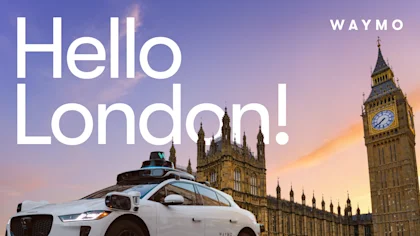After years of navigating the comparatively straightforward grids of American cities – bless their predictable, right-angled hearts – Waymo is finally taking on a real challenge: London. Alphabet’s autonomous vehicle unit has officially declared its expansion to the UK, marking its inaugural foray into the notoriously complex European market. The company’s sleek, all-electric Jaguar I-PACE vehicles are already en route, presumably bracing themselves for the painstaking process of mapping the city’s notoriously complex, ancient, and often utterly bewildering streetscapes, initially with human safety drivers gamely gripping the wheel.

Now, don’t go expecting to hail a driverless ride home from your favourite pub just yet. Waymo is optimistically targeting a 2026 launch for its fully autonomous public service, contingent, of course, on navigating the labyrinthine corridors of regulatory approvals from UK authorities. The initial phase will focus squarely on the prosaic but vital task of data collection, blanketing a generous 100-square-mile swathe of the city. This strategic move immediately thrusts Waymo into a direct, high-stakes race with formidable competitors like Uber, which has shrewdly partnered with local AI firm Wayve, also eyeing a 2026 UK launch. To manage its nascent London operations, Waymo will be collaborating with its trusted fleet partner, Moove.
Why Is This Important?
Waymo’s audacious London venture isn’t just another product launch; it’s a significant, high-stakes litmus test for the entire autonomous vehicle industry. Success in a city famed for its bewildering array of roundabouts, impossibly narrow lanes, and a traffic flow that often resembles a particularly chaotic ballet would be nothing short of a massive, industry-validating triumph for its technology. This ambitious expansion conveniently coincides with the UK’s concerted push to become a global hub for AV development, a vision substantially bolstered by the recently passed Automated Vehicles Act. This groundbreaking new legal framework aims to have self-driving vehicles legally cruising on British roads by 2026, thereby forging a clear, inviting regulatory path that almost certainly proved irresistible to Waymo. For long-suffering Londoners, it dangles the tantalising promise of a future with potentially safer roads, especially given Waymo’s rather compelling claim that its vehicles are involved in far fewer injury-causing collisions than their human-driven counterparts. And for the rest of Europe? Well, it’s a clear, unmistakable signal that the robotaxi invasion is no longer merely an American phenomenon.












